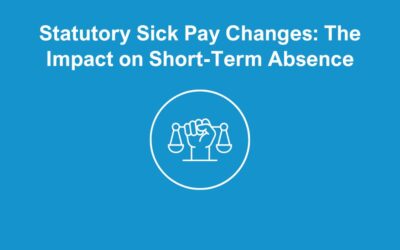Difficult conversations at work are an inevitable part of being an employer. Whether it’s providing constructive feedback, addressing misconduct, or discussing performance issues, these conversations are essential for a productive and harmonious workplace. Handling them effectively can strengthen trust, improve morale, and foster a positive company culture.
In this article, we’ll explore how to navigate this issue, outlining steps to tackle them constructively. Additionally, we’ll provide strategies to communicate effectively when dealing with difficult conversations at work to ensure these discussions lead to positive outcomes.
What Are Difficult Conversations at Work?
These interactions that may cause stress, discomfort, or tension due to their sensitive nature. Challenging discussions include topics like:
- Addressing poor performance
- Handling workplace conflicts
- Discussing pay or promotion rejections
- Providing feedback on personal hygiene or behaviour
- Managing redundancies or terminations
Understanding how to approach these conversations with empathy and professionalism is key to maintaining a respectful workplace environment.
Examples of Difficult Conversations
- Poor Performance
Example: An employee consistently misses deadlines, affecting team productivity.
Employer Approach: Offer constructive feedback with clear examples and actionable steps. - Conflict Between Employees
Example: Two team members clash over responsibilities, causing disruptions.
Employer Approach: Mediate the conversation, allowing each party to express their perspective while guiding them towards resolution. - Pay or Promotion Rejection
Example: An employee requests a salary increase or promotion, but the business is unable to accommodate it.
Employer Approach: Be transparent about the decision while acknowledging the employee’s efforts. - Redundancy Discussions
Example: Organisational restructuring leads to job redundancies.
Employer Approach: Deliver the message with compassion, offering support and guidance for the transition.
Steps to Tackle Difficult Conversations at Work
- Prepare Thoroughly
- Gather all relevant facts and data.
- Plan what you want to say and anticipate potential reactions.
- Choose a private and neutral setting for the conversation.
- Be Clear and Direct
- Use straightforward language to avoid confusion.
- State the purpose of the conversation early on.
- Stay Empathetic
- Show understanding of the employee’s perspective.
- Use active listening to demonstrate that you value their input.
- Focus on Solutions
- Discuss actionable steps to resolve the issue.
- Involve the employee in creating a plan for improvement.
- Follow Up
- Monitor progress after the conversation.
- Provide ongoing support to ensure long-term success.
Best Practices for Effective Communication
Handling difficult conversations at work requires excellent communication skills. Here are some strategies to ensure you deliver your message effectively:
- Adopt a Positive Tone
Even when discussing challenging topics, maintain a calm and positive tone. This helps set the stage for a productive discussion. - Avoid Jargon
Keep the conversation simple and clear to avoid misunderstandings. - Practice Active Listening
Paraphrase the employee’s concerns to show you’re paying attention and to confirm understanding. - Acknowledge Emotions
Recognise the employee’s feelings, whether they are angry, upset, or frustrated. This demonstrates empathy and builds rapport.







